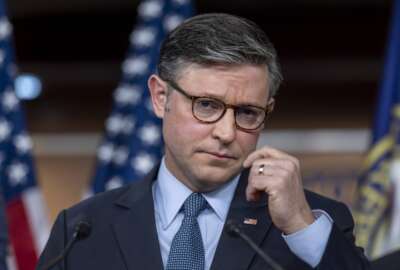Secrets to gov programs that work
The Center for American Progress\' Jitinder Kohli shares the center\'s new report on how to design successful government programs.
wfedstaff | June 3, 2015 8:40 pm
What’s the secret to government programs that work?
The Center for American Progress spoke to more than 200 experts over the past six months on the secrets to success.
“The secret basically is you should ask yourself a fairly systematic and standard set of questions both at the program design stage and program evaluation stage,” said Jitinder Kohli, senior fellow at the Center for American Progress and one of the authors of the new report, Doing What Works.
According to the report, less than one in three Americans have confidence the government can solve problems. Part of the problem lies in the political process. Lawmakers may endorse programs that play well to the media or appeal to a certain constituency; however, the “boring questions” such as the need and implementation of the program are not answered first, Kohli said.
“In many ways, these boring questions will help you design programs that actually work,” he said.
The center’s report offers a checklist of 31 items that agencies should address before designing a program. The items are categorized by a key question, such as: Are the goals clear and the cost estimates accurate? Does the program establish the right incentives? How will you monitor the program and rethink the approach?
“People can literally work their way down and ask themselves if they’ve covered the bases as they’re designing the program,” Kohli said of the checklist.
Kohli said the checklist is for new programs, but the need is greater for evaluating existing programs. But, currently, the government does not have “a systematic process,” he said.
The report offers another checklist to review existing programs. The key is to evaluate a program in the context of the agency’s goals and to set benchmarks.
“Often you have a situation where a program may be very effective at its own very narrow goals, but those goals are not very high priority for that administration or agency on a whole,” he said.
The recommendations in the report maximize the chances of success but do not guarantee it, Kohli added.
“The thing about government is what we do is actually hard and the work of government involves trying to change the behavior of people who are often a long way away from government through programs that are designed a long way away,” Kohli said. “It’s hard to get that absolutely right … Sometimes things will just fail, even though you do it in the right way.”
Kohli was part of a Center for American Progress panel discussion Wednesday, “Transforming Program Performance GPRA Reform and New Tools for Program Design and Evaluation.”
RELATED STORY
Kohli: U.K. offers model of regulation reform
Copyright © 2024 Federal News Network. All rights reserved. This website is not intended for users located within the European Economic Area.





